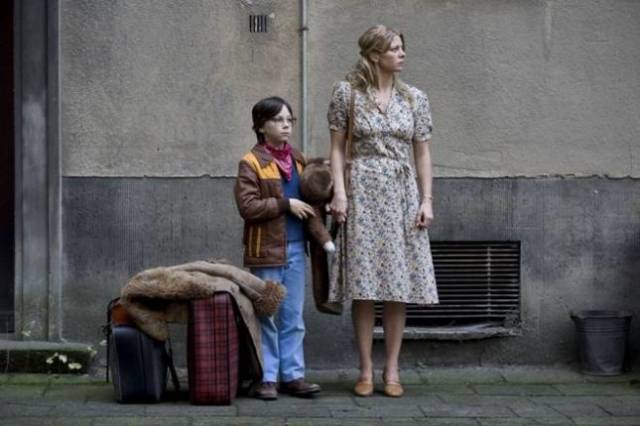
 West is a film about a border crossing, but the crossing itself happens early in the film and is relatively uneventful. Rather, West addresses the psychological malaise that accompanies the transition, the lingering uncertainties and confusions that come from leaving one country and ideology behind for another.
West is a film about a border crossing, but the crossing itself happens early in the film and is relatively uneventful. Rather, West addresses the psychological malaise that accompanies the transition, the lingering uncertainties and confusions that come from leaving one country and ideology behind for another.
Set in the late 70's, the film centers on Nelly Senff (Jördis Triebel) and her young son Alexej (Tristan Göbel), two of the four million East Germans who left the GDR for a new life in West Germany. Nelly is leaving three years after the disappearance and presumed death of her husband. Unlike most other emigrants of the time, her desire to leave has nothing to do with politics or economics, she simply wants to escape the ghosts of her past and start fresh somewhere else. Yet however many times she repeats that reasoning, authorities won’t take it at face value, assuming there’s more to the story.
American agents, particularly John Bird (Jacky Ido), repeatedly question her about her past and the husband she thought was dead, raising doubts in her mind on the one subject she had hoped to leave behind. Meanwhile, Nelly and Alexej find it harder to assimilate than they had anticipated. The West Germans are condescending and suspicious to the former East Germans, and her professional credentials don’t hold as much weight. The mother and son find housing in a “temporary” resettlement home, only to find that many of the other residents have been there for months if not years. Alexej is befriended by the kindly Hans Pischke (Alexander Scheer), but rumors swirl around him as a possible spy.
The film’s story is adapted from a novel, but it is still a very personal story for director Christian Schwochow. As a young boy, he left the GDR with his mother Heide, who wrote the screen adaptation, and accordingly they have an excellent grasp of the murky, liminal state of mind that comes with leaving one country and not truly being adopted by another. When there really are people watching you, where does rational self-interest end and paranoia begin? Nelly is only trying to protect herself and most of all Alexej, but eventually her paranoia becomes more of an obstacle to happiness than any state agency.
Schwochow shoots the film in a fuzzed out seventies aesthetic, with a mostly grey color palette and both the look and editing of the film capture the heroine’s sense of unease. West ultimately does not provide definite answers to either Nelly or the audience. Nelly has to disavow or at least ignore the political machinations going on around her and simply live her own life the best she can. West is a murky and atmospheric look at both sides of Germany in the 1970s that shows we are all subject to forces beyond our control and we must learn to live with uncertainty.
West will play at Anthology Film Archives from Nov 7-13, to commemorate the 25th anniversary of the Fall of the Berlin Wall.